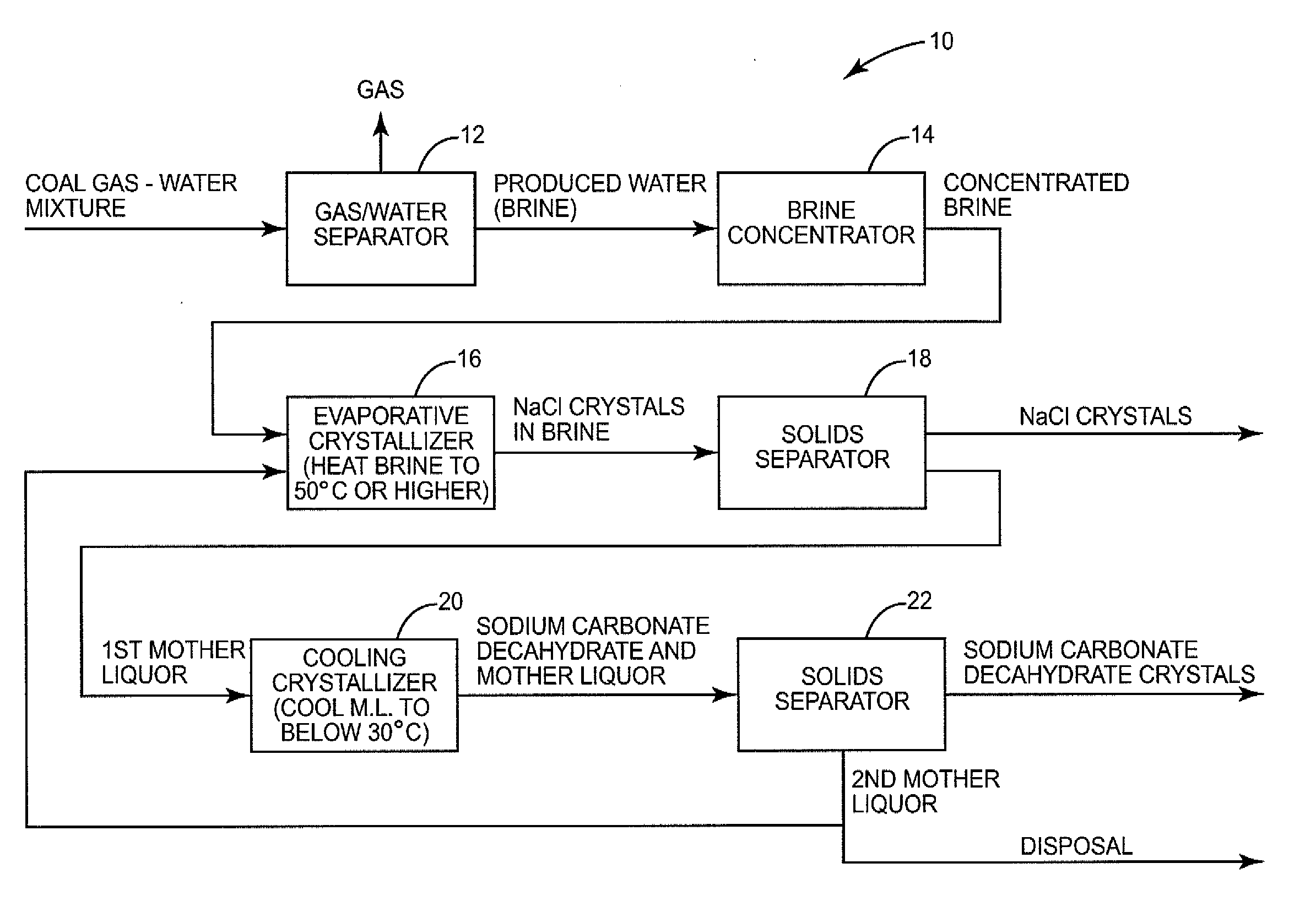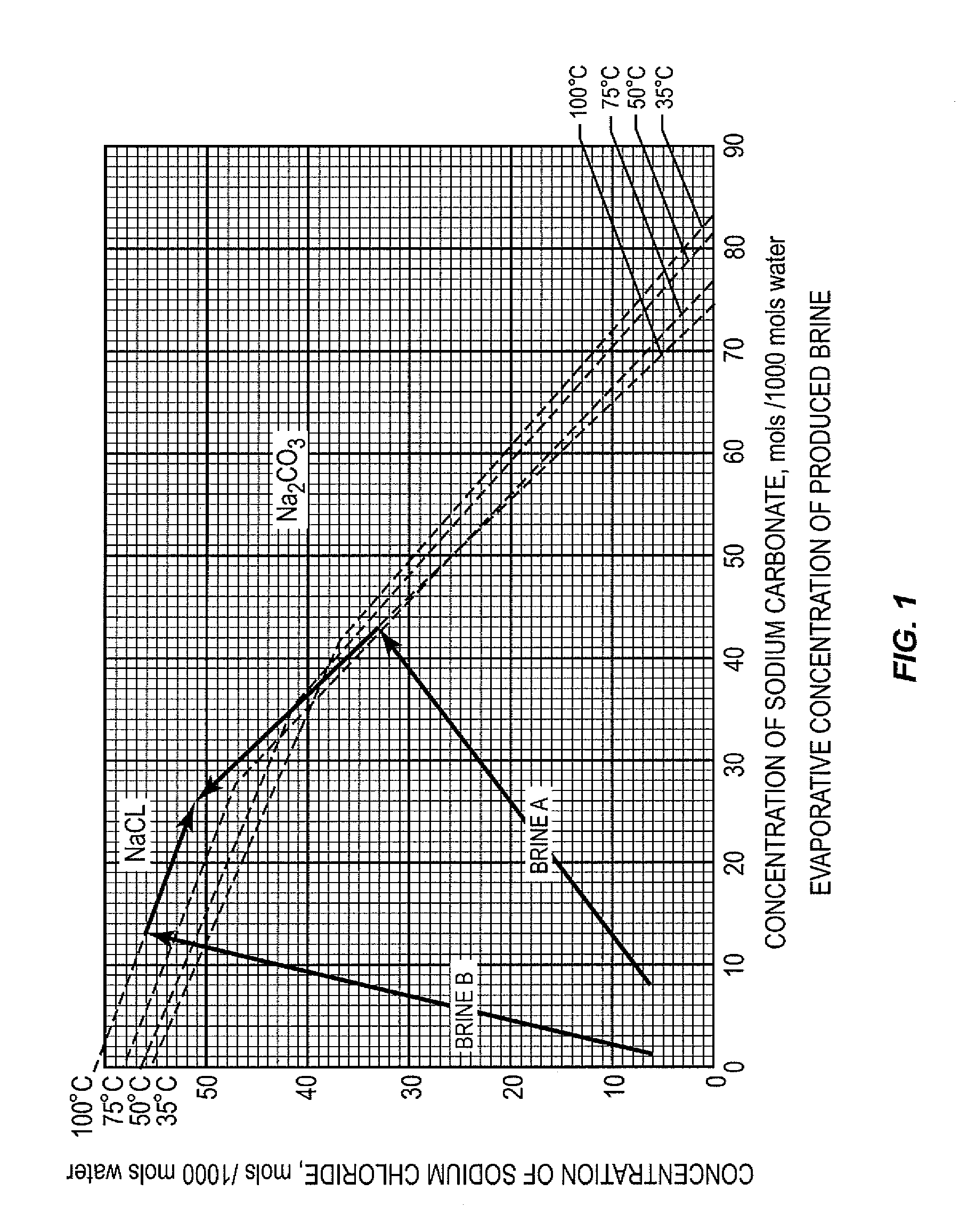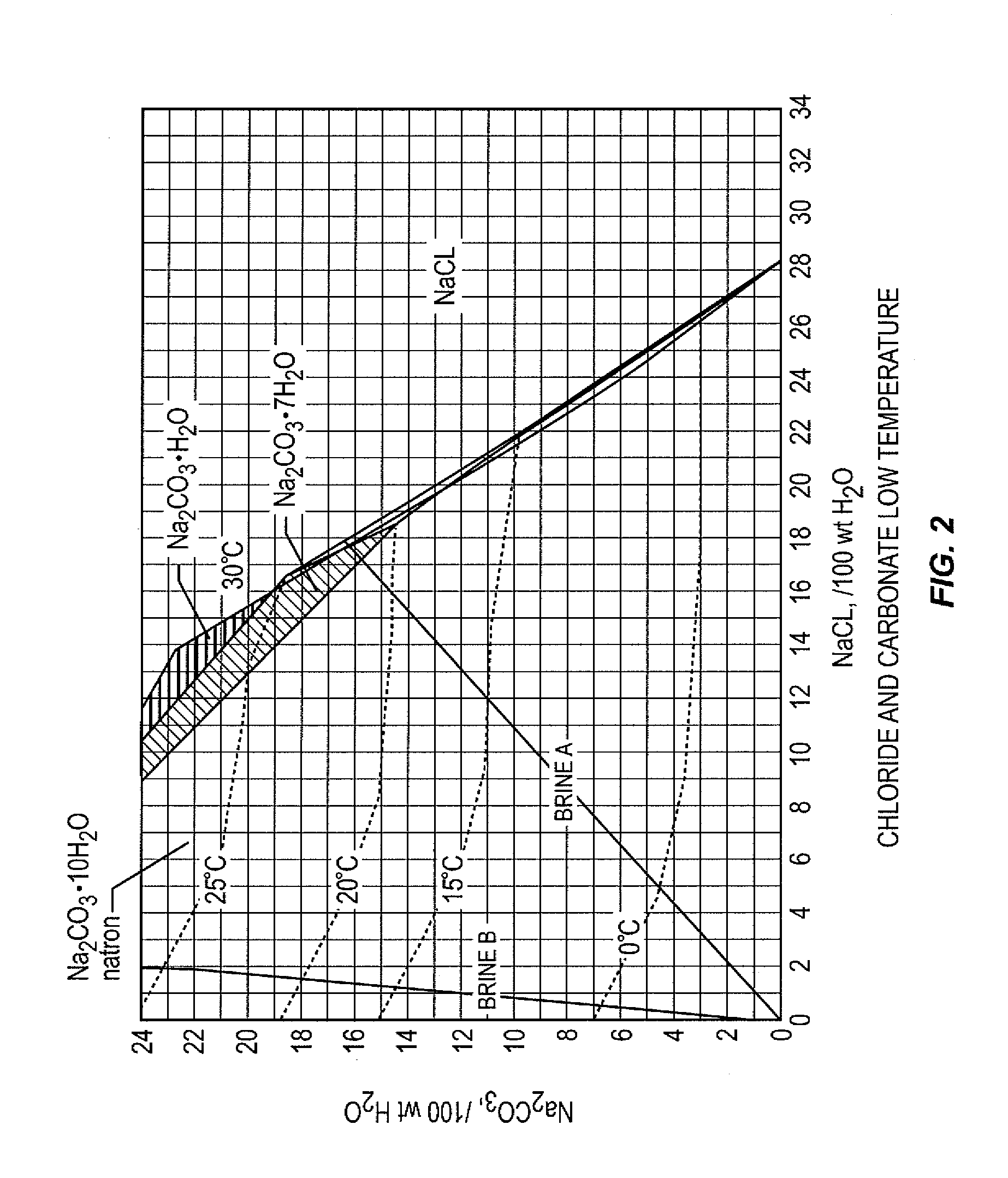Selective Salt Recovery from
- Summary
- Abstract
- Description
- Claims
- Application Information
AI Technical Summary
Problems solved by technology
Method used
Image
Examples
Embodiment Construction
[0014]Before discussing the particular process in more detail, it may be beneficial to review the solubility limits of an aqueous mixture containing sodium chloride, sodium carbonate, and sodium carbonate decahydrate. FIG. 1 shows the solubility limit of an aqueous mixture of sodium chloride and sodium carbonate along with the path that the mixture will take as water is removed by evaporation or other means. Two samples of produced water or brine are shown, one is identified as “Brine B” and one is identified as “Brine A”. The path of these two samples helps understand and appreciate the present invention and further suggests why slight variations in the process might be beneficial in certain cases.
[0015]For any brine composition, one starts at a low concentration (lower left limit of the brine characteristic line) and progresses up and to the right as the brine is pre-concentrated. Pre-concentration by either reverse osmosis or thermal evaporation should stop before reaching the sa...
PUM
| Property | Measurement | Unit |
|---|---|---|
| temperature | aaaaa | aaaaa |
| temperature | aaaaa | aaaaa |
| temperature | aaaaa | aaaaa |
Abstract
Description
Claims
Application Information
 Login to View More
Login to View More - R&D
- Intellectual Property
- Life Sciences
- Materials
- Tech Scout
- Unparalleled Data Quality
- Higher Quality Content
- 60% Fewer Hallucinations
Browse by: Latest US Patents, China's latest patents, Technical Efficacy Thesaurus, Application Domain, Technology Topic, Popular Technical Reports.
© 2025 PatSnap. All rights reserved.Legal|Privacy policy|Modern Slavery Act Transparency Statement|Sitemap|About US| Contact US: help@patsnap.com



